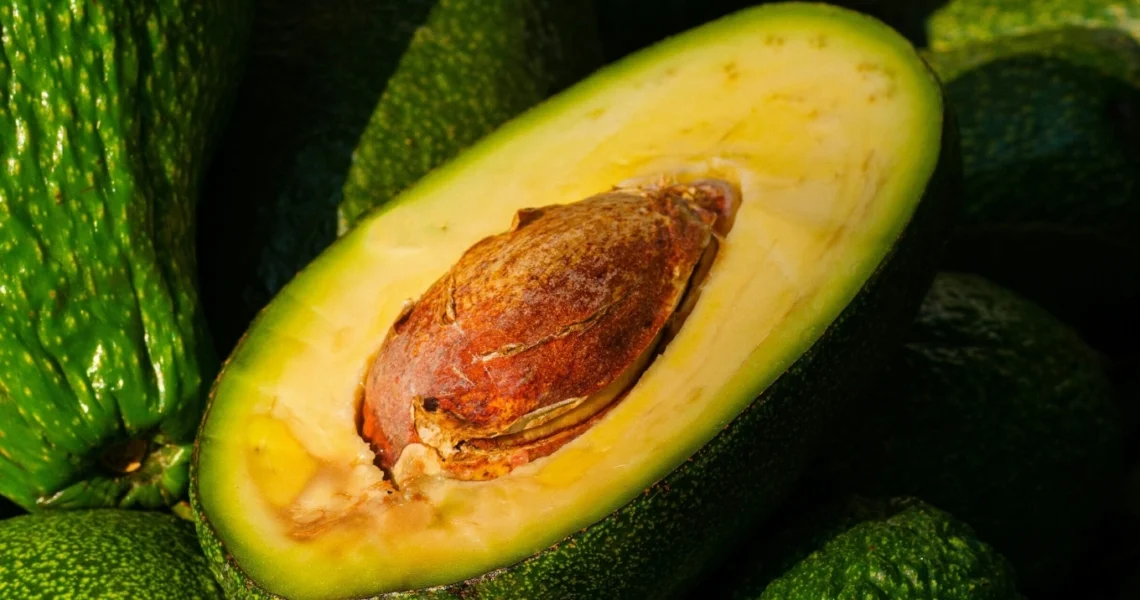9 Surprising Health Benefits of Eating Avocados
The humble avocado, often celebrated for its creamy texture and mild, buttery flavor, is far more than just a delicious addition to guacamole or toast.
It is, in fact, a nutritional powerhouse, packed with an impressive array of healthy fats and dietary fiber that contribute significantly to overall well-being. Incorporating avocados regularly into your diet can yield remarkable benefits for various aspects of your health, ranging from cardiovascular vitality to effective weight management and even enhanced skin and hair care. Its versatility in the kitchen and its robust nutrient profile make it a standout ingredient in a balanced diet.
According to Dr. Tran Thi Tra Phuong, Deputy Head of the Nutrition Department at K National Center Hospital, the exceptional concentration of nutrients and beneficial oils found in avocados makes them a common and valuable component in both health and beauty products. This dual application underscores the fruit’s multifaceted advantages. A closer look at its composition reveals precisely why. Avocado oil, a rich extract from the fruit’s pulp, consists of approximately 71% monounsaturated fatty acids (MUFA), often lauded as “good fats.”
It also contains about 13% polyunsaturated fatty acids (PUFA), another category of beneficial fats, and only 16% saturated fatty acids (SFA), which are less desirable in large quantities. This favorable fat profile is just one piece of the puzzle. Furthermore, the avocado fruit itself is an excellent source of dietary fiber, comprising roughly 70% insoluble fiber (which aids in digestive regularity) and 30% soluble fiber (known for its role in cholesterol management and blood sugar control). This unique combination of healthy fats and abundant fiber truly cements the avocado’s status as a formidable nutritional powerhouse.
Here are nine compelling health benefits that underscore why regular consumption of avocados can significantly enhance your health:
1. Good for Heart Health: A Cardiovascular Ally
Avocados are champions when it comes to supporting cardiovascular health. Their rich composition of monounsaturated fats (MUFAs), particularly oleic acid, plays a pivotal role in improving key markers associated with heart disease risk. These healthy fats actively work to reduce levels of “bad” cholesterol (Low-Density Lipoprotein or LDL), which is a major contributor to plaque buildup in arteries. Simultaneously, MUFAs can help increase levels of “good” cholesterol (High-Density Lipoprotein or HDL), which helps remove excess cholesterol from the body.
Beyond their beneficial fat content, avocados also provide a significant amount of Vitamin B6 and potassium. Vitamin B6 is involved in regulating homocysteine levels, an amino acid that, in high concentrations, has been linked to increased risk of heart disease. Potassium, on the other hand, is crucial for maintaining healthy blood pressure. It acts as a natural diuretic, helping the body excrete excess sodium, which can contribute to hypertension.
Regular consumption of avocados, therefore, can lead to a notable improvement in overall blood fat levels, creating a more favorable lipid profile. This comprehensive action on cholesterol and blood pressure is absolutely crucial for significantly reducing the risk of developing various cardiovascular diseases, including heart attacks and strokes. Incorporating avocados into meals can be a delicious strategy for long-term heart protection.
2. Promotes Brain Health: Fueling Cognitive Function
The intricate network of the brain relies on a consistent supply of specific nutrients to function optimally, and avocados deliver on this front. They are remarkably rich in B vitamins, a group essential for numerous neurological processes. This includes a notable amount of folate (Vitamin B9). Folate plays a key role in brain health by supporting vital metabolic pathways and facilitating the production of neurotransmitters, the chemical messengers that allow brain cells to communicate effectively. Adequate folate levels are critical for DNA synthesis and repair, which are fundamental processes for healthy brain tissue.
Scientific research has consistently linked sufficient intake of folate and Vitamin B12 (another B vitamin, though avocados are not a primary source of B12, they contribute to the overall B-vitamin complex) to a reduced risk of age-related cognitive decline. This includes a lower likelihood of developing severe conditions such as Alzheimer’s disease. Furthermore, these B vitamins are associated with a decreased incidence of depression, as they are involved in the synthesis of mood-regulating neurotransmitters like serotonin and dopamine.
They also play a protective role against strokes by influencing blood vessel health and reducing homocysteine levels, as mentioned previously. The healthy fats in avocados also contribute to brain health by supporting the integrity of cell membranes and potentially improving blood flow to the brain, making avocados an excellent food for sustained cognitive function and mental well-being.
3. Supports Healthy Eyesight: Protecting Your Vision
Our eyes are constantly exposed to environmental stressors, including harmful ultraviolet (UV) radiation. Avocados offer a natural line of defense for ocular health, primarily due to their generous content of specific carotenoids. They are particularly loaded with lutein, a powerful carotenoid known for its potent antioxidant properties. Lutein acts as a natural filter, absorbing damaging blue light and helping to protect delicate eye tissues from UV damage and oxidative stress.
When consumed, lutein, alongside another crucial carotenoid called zeaxanthin, is absorbed and concentrated into the macula of the eye. The macula is a small, central part of the retina responsible for sharp, detailed central vision—the kind needed for reading, driving, and recognizing faces. By accumulating in the macula, these compounds form a protective pigment, which helps to improve age-related eye function and significantly protect against common vision disorders, such as Age-related Macular Degeneration (AMD) and cataracts. Regular consumption of avocados, therefore, contributes directly to maintaining keen eyesight and preserving visual acuity as one ages, acting as an internal “sunglasses” for your eyes.
4. Stronger Bones: Essential for Skeletal Health
While calcium and Vitamin D often take center stage in discussions about bone health, avocados contribute significantly through other vital nutrients. Avocados are a commendable source of Vitamin K, a fat-soluble vitamin that is absolutely essential for robust bone health. Vitamin K plays a crucial role in bone regeneration and calcium metabolism. It activates specific proteins, like osteocalcin, which are necessary for binding calcium within the bone matrix, thereby promoting proper bone mineralization and strength. Without sufficient Vitamin K, calcium cannot be effectively integrated into bones, leading to weakened bone structure.
Beyond Vitamin K, the carotenoids found in avocados (such as lutein and zeaxanthin) also extend their protective benefits to the skeletal system. These antioxidants help to reduce the risk of cartilage damage. Cartilage, the flexible connective tissue found in joints, acts as a cushion between bones. By mitigating oxidative stress and inflammation, carotenoids can help preserve cartilage integrity, thereby promoting better joint and bone health and potentially reducing the risk of conditions like osteoarthritis. Incorporating avocados supports not just bone density but also the overall health and flexibility of your joints, contributing to better mobility and reduced discomfort.
5. Supports Muscle Recovery: The Post-Workout Powerhouse
For athletes and active individuals, muscle recovery is a critical component of any fitness regimen. Avocados are an excellent food choice to aid in this process, primarily due to their high content of potassium. Potassium is an essential electrolyte that plays a fundamental role in muscle function and nerve signal transmission. It helps regulate fluid balance within cells, facilitates muscle contractions, and prevents cramps.
Dr. Phuong specifically recommends consuming avocados post-workout to help in the recovery phase. During intense physical activity, the body loses essential minerals, including potassium, through sweat. Replenishing these lost electrolytes is crucial for optimal muscle healing and recovery. Avocados provide a natural and delicious way to restore these vital minerals, aiding in the repair of muscle fibers and reducing post-exercise soreness. The healthy fats in avocados also provide a sustained energy source and can help reduce exercise-induced inflammation, further supporting the recovery process and preparing muscles for subsequent training sessions.
6. Improves Skin Health: Nourishment from Within
The health and appearance of our skin are often a reflection of our internal nutritional status. Avocados are a fantastic food for promoting radiant and healthy skin, thanks to their synergistic blend of beneficial fats and vitamins. The omega-3 fatty acids (a type of polyunsaturated fat) and Vitamin E found abundantly in avocados are powerful allies for skin repair and protection. Omega-3s help maintain skin cell membrane integrity and reduce inflammation, which can be a root cause of many skin issues. Vitamin E, a potent antioxidant, protects skin cells from oxidative damage caused by free radicals, which contribute to premature aging and skin damage.
These nutrients work in concert to help repair damage caused by common skin conditions such as acne, eczema, pimples, or superficial scratches. They promote faster healing and can reduce redness and irritation. Beyond internal consumption, the benefits of avocados for skin can also be harnessed topically. Applying avocado oil directly to the skin can provide deep moisturization, helping to improve skin elasticity and promote regeneration.
Regular topical application can also help to even out skin tone and restore a more youthful, supple complexion, by nourishing the skin’s barrier and reducing the appearance of fine lines. The natural anti-inflammatory properties further aid in calming irritated skin, making it a versatile ingredient for both dietary and topical skin care routines.
7. Promotes Hair Growth: For Lustrous Locks
Just as avocados benefit skin, their rich nutritional profile also extends to promoting healthier, more vibrant hair. Avocados contain a spectrum of essential vitamins and minerals that contribute to overall bodily health, and by extension, robust hair growth. These include B vitamins (like biotin), Vitamin E, and minerals such as potassium and magnesium, all of which are vital for healthy hair follicles and strong hair shafts.
A key factor in avocado’s hair benefits lies in its unique fatty acid composition. The monounsaturated oils in avocados are particularly effective at penetrating the hair shaft. Unlike polyunsaturated fats, which can sometimes sit more on the surface, MUFAs are absorbed more deeply, providing profound nourishment from within each strand.
This deep penetration helps to detangle hair, reducing breakage and making it more manageable. It also contributes to promoting healthier, shinier strands by moisturizing the hair from the inside out, improving elasticity, and protecting against damage from environmental stressors or styling. Whether consumed as part of your diet or used as a component in natural hair masks, avocados can significantly contribute to the strength, appearance, and overall vitality of your hair.
8. Helps Maintain Healthy Weight: A Satiating Superfood
Incorporating avocados into your regular diet can be a surprisingly effective strategy for positively impacting weight management. Despite their calorie density due to their fat content, avocados contribute to weight control in several key ways.
Firstly, their high fiber content (both soluble and insoluble) combined with healthy fats contributes significantly to enhancing feelings of fullness and satiety. This means that eating avocados can help you feel fuller for longer, reducing the likelihood of overeating or snacking unnecessarily between meals. This sustained feeling of fullness, in turn, helps to regulate appetite more effectively.
Secondly, research suggests that regular avocado consumption can help reduce visceral fat, which is the particularly dangerous type of fat that accumulates around abdominal organs and is strongly linked to metabolic syndrome and chronic diseases. The monounsaturated fats in avocados appear to play a role in this reduction.
Finally, avocados can also support healthy gut hormones that influence appetite and metabolism. Their unique nutrient profile assists in controlling overall calorie intake by promoting satisfaction and reducing cravings. By fostering a sense of fullness and supporting metabolic health, avocados can be a valuable addition to a balanced diet aimed at achieving or maintaining a healthy weight, providing nutrient-dense calories that aid in appetite control rather than hinder it.
9. Boosts Immunity: Strengthening Your Defenses
A strong immune system is your body’s frontline defense against illnesses, and avocados are well-equipped to bolster this crucial function. They are generously packed with powerful antioxidants, including beta-carotene (which the body converts to Vitamin A) and Vitamin E. These antioxidants play a vital role in neutralizing free radicals, which are unstable molecules that can cause cellular damage, contribute to chronic diseases, and accelerate the aging process. By combating oxidative stress, avocados help protect immune cells from damage, allowing them to function more effectively.
Beyond their antioxidant capacity, avocados are also a good source of other immune-boosting vitamins. They contain Vitamin C, a well-known immune supporter that stimulates the production of white blood cells and acts as an antioxidant. Additionally, they provide Vitamin B6, which is essential for numerous immune reactions, including antibody production.
Together, these vitamins and antioxidants play a vital role in bolstering immune defenses and reducing oxidative stress throughout the body. Regular consumption of avocados thus contributes to a more resilient immune system, helping your body fight off infections and maintain optimal health, making them a delicious daily ally for your overall well-being.
Integrating Avocados into Your Daily Diet
Given the impressive array of health benefits discussed, from protecting the heart and brain to improving skin, hair, and supporting weight management and immunity, integrating avocados into your daily diet is a remarkably simple and delicious way to enhance your overall health. There are countless ways to enjoy them:
- Breakfast: Slice them onto whole-grain toast, add them to scrambled eggs or omelets, or blend them into your morning smoothie for a creamy texture and nutrient boost.
- Lunch: Use them in salads, sandwiches, or wraps as a healthy fat source. A simple avocado and tomato salad can be incredibly refreshing.
- Dinner: Add diced avocado to tacos, burritos, chili, or even as a creamy topping for grilled fish or chicken.
- Snacks: Enjoy avocado slices with a sprinkle of salt and pepper, or mash it with lime and cilantro for a quick, healthy guacamole.
While avocados are calorie-dense due to their healthy fat content, moderation is key, especially if you are watching your caloric intake. A quarter to a half of a medium avocado per day is generally a good serving size to reap the benefits without overdoing it on calories. By consistently adding this nutrient-rich fruit to your meals, you can actively support your body’s functions and contribute to a healthier, more vibrant life.






